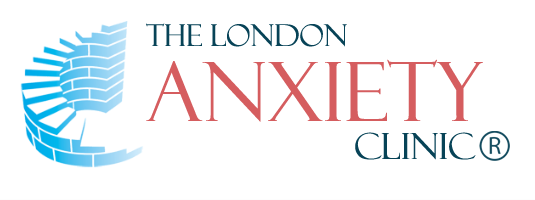Treatments for social anxiety at the London Anxiety Clinic Harley Street (UK)
The London Anxiety clinic provides specialist treatment for social anxiety. Now you may have heard of the terms, counselling for social anxiety, CBT for social anxiety, help for social anxiety, therapy for social anxiety or hypnotherapy for social anxiety. These are all terms used in the 'therapeutic world'. But what does all this mean? Whatever the treatments are for social anxiety or the name of the therapy for social anxiety being offered, there are key characteristics that I would like to share with you. I will also be sharing in this blog what we may want to identify as part of the treatment for social anxiety and a general idea of the treatments I provide at the anxiety clinic for social anxiety.
Social anxiety key characteristics
Naturally each persons experience of social anxiety will have differences and I aim here to capture some of the main characteristics and what clients present with. There is certainly a fear of social situations and for some these can be specific or a person can generally feel anxious in all types of social interactions. Social anxiety can also be about performance and very often a person can feel as though they are about to be judged, criticised or scrutinised by others. There is a fear of embarrassment, even the thought of humiliation.
For the treatment of social anxiety at the London Anxiety Clinic, we may want to identify the following:
- Specific thoughts or predictions that may be contributing to feeling socially anxious in social situations. This would also include self criticism.
- To identify if the social anxiety is specific to particular experiences or to a number of social situations, determining the differences between social anxiety and social phobia.
- The intensity of self awareness and introspection relating to feeling socially anxious.
- The physical sensations and interpretations of these sensations.
- Any intrusive memories of specific events, assessing past experiences, the meaning and understanding applied.
- The history and problem development of social anxiety.
- Nutritional elements that may contribute to increasing anxiety symptoms in the body and overall health.
- Your current support and network of friends, family and any associated risks.
Treatments for social anxiety
Help for social anxiety is available at the London Anxiety Clinic, and below I have written about some of the areas I discuss with my clients. When working with anxiety we are not just talking about how awful the situation is, this is counter productive. I show my clients how to apply the particular psychological strategies and techniques, supporting, motivating, coaching and encouraging my clients through their journey of personal development.
- How to refocus away from your unhelpful internal narrative and develop an inner dialogue that is understanding and compassionate - these are key ingredients of therapeutic change.
- How to re-evaluate particular thinking styles associated with social anxiety, addressing any misinterpretations.
- How to identify and re-label body sensations, suffering from social anxiety, people can blush or will shake, assuming that others will criticise, including negative judgements.
- To address any safety behaviours associated with social anxiety. For example avoiding or making decisions, like, leaving a party earlier because.... Keeping quiet because.... or maybe choosing to avoid eye contact. Safety behaviours encourage avoidance as they presuppose that the situation will be anxiety provoking.
- To challenge and reappraise any predictions and building resources to face hypothetical fears.
- Create social behavioural experiments ( to learn to ride a bike we had to get on one). Behavioural experiments help to challenge internal predications and beliefs about what may happen. Behavioural experiments help to develop confidence , taking small incremental steps increases self esteem.
- Neuroscience and positive psychology - using imagination, how to create and build a future view of self in particular social situations. How to deepen the skill of positive mental rehearsal. This assists in creating the neural networks and associations into memory. Your are literally working on rewiring your brain.
- Learning how to use your physiology, stimulating your nervous system, hormones and neurochemicals to feel much more calm in your body.
Social Anxiety questionnaire and what next ?
To provide help for social anxiety I have provided a social anxiety questionnaire you can find it here on this blue link. The social anxiety questionnaire will ask you a number of questions that relate to the level of fear of a situation or the level of avoidance you may be experiencing, across a number of different situations.
Your responses are also important to me as you are providing relevant information about your personal experiences and it helps me to know where to apply particular therapeutic evidenced based interventions for the social anxiety you are experiencing, if you wish to book an appointment. Should you wish to choose to enter your name and email address when you complete the questionnaire I will receive a copy of your responses, this information is sent to me directly and is confidential. I can then contact you via email to arrange a 30 minute complimentary telephone consultation. if you have any questions please feel free to email the London Anxiety clinic on








